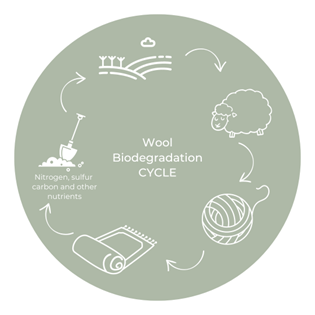It starts at the raw material, goes through the manufacturing and extends to the consumer and the respective end of life of each product and piece!
Have you ever wondered where every product and piece you buy for yourself and your home comes from and how it was made? Here at Momy Decor, we always encourage our resellers to show their customers how Lorena Canals’ pieces are made – from raw materials and production until they reach them.
The sustainable production cycle must consider not only the rational use of raw materials and natural resources, but also be concerned with the ecologically. What is the point of all the concern with the initial stages of the production chain if, at the end of the product’s useful life, it will be discarded in the wrong way?
In keeping with this ecological issue, one of Lorena Canals´s collection, named Sheep of the World – soon in Australia – , masterfully meets this challenge. In addition to using wool from sheep coming from several parts of the world such as Tunisia, Middle East, New Zealand and Persia in their natural colors – reducing up to 85% of energy in production. Then, when they are no longer used in the home, they can be returned to the soil, becoming fertilizer that provides nutrients for uptake and growth of other organisms. In this way, it improves water and air retention and infiltration, reduces soil erosion, and can be used as fertilizer for herbs and vegetables.
When discarded, in warm and humid soil or buried, the material decomposes naturally through the action of fungi and bacteria, which produce enzymes that are transformed into essential elements – such as nitrogen and sulfur, known to collaborate directly to the development of nutrients and natural carbon. Another curiosity: by recycling a wool carpet and using it as fertilizer, the yield of grass growth increases between 24% and 82%.

This process is known as closed-loop natural recycling, restoring the soil and grass to its original foundations. It means that the wool returns to its original state, which was the sheep’s food. Curious, isn’t it?
All this means that a conscious choice helps our planet and humanity to have natural resources without scarcity. It is not enough just to recycle, but to think about responsible production, from beginning to end!


